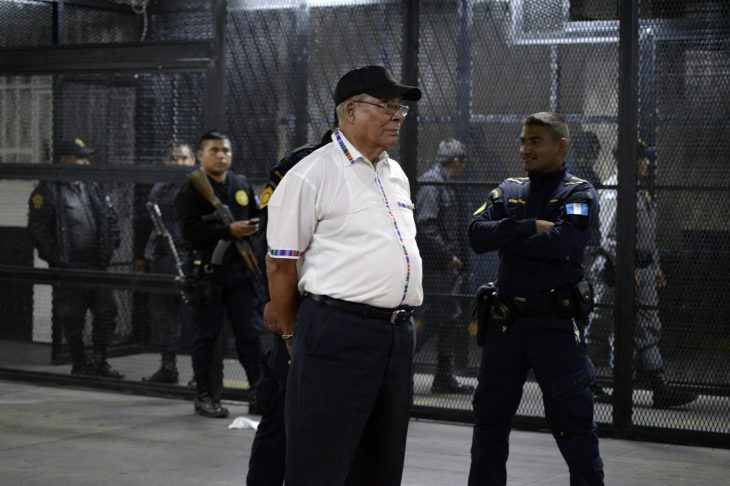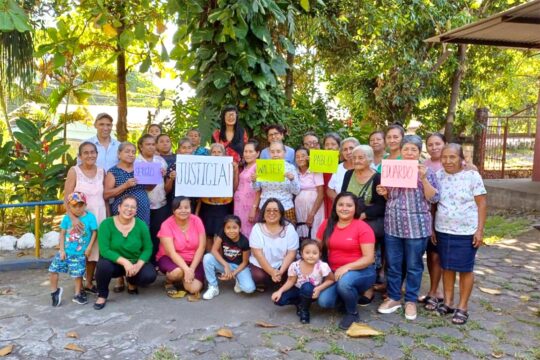In this relatively calm week for transitional justice, the example came from Guatemala. This small Latin American country, which was torn apart by a bloody civil war lasting nearly 40 years (1960-1996) and leaving thousands dead, arrested 18 retired senior army officials accused of participating in massacres of indigenous people. Between 2012 and 2015, the remains of 558 adults and children were found in a former military camp. These unprecedented arrests came just days before the start of the genocide trial of former
dictator Efrain Ríos Montt, charged in connection with the massacre of 1,770 indigenous people by armed forces under his rule. In September 2015, Guatemalans forced President Otto Pérez Molina to resign following a big corruption scandal.
Another sign of change in post-civil war countries is in Sri Lanka, where President Maithripala Sirisena wants sweeping constitutional reform to prevent recurrence of an ethnic conflict that left more than 100,000 dead. Sirisena, who was elected last year, plans to introduce a federal system that would give more autonomy to the Tamil minority and replace the presidential system with a parliamentary democracy. Feeling victim of discrimination, Tamil rebels took up arms in 1972 leading to a bloody civil war that ended when the Tamils were crushed. The UN is calling for establishment of a Truth Commission and special courts supported by international expertise to shed light on accusations of numerous war crimes and crimes against humanity committed during the conflict. The new President has promised to set up transitional justice mechanisms but opposes international intervention which is rejected by hardliners in the Sinhalese majority.
Reconciliation has also been promised in Côte d’Ivoire, but seems a long way off. In his traditional New Year speech, recently re-elected President Alassane Ouattara announced a presidential pardon for 3,100 prisoners. But although a few people held in connection with the post-election crisis could benefit, the pardon concerns mostly common law prisoners. During the election campaign the opposition, which has called repeatedly for political prisoners to be freed, accused Ouattara of failing to reconcile Ivorians and practising “victor’s justice” that targets abuses only by supporters of former president Laurent Gbagbo and not by his own side. Laurent Gbagbo has been jailed since the end of 2011 in The Hague, where his crimes against humanity trial is due to start before the International Criminal Court (ICC) on January 28 for alleged crimes committed during the post-election crisis of 2010-2011.
The crisis, sparked by Gbagbo’s refusal to recognize Ouattara’s victory in November 2010 presidential elections, left some 3,000 people dead in five months of violence.
As if proof were needed that the African Great Lakes region remains the theatre of forgotten wars, 17 people including a pregnant woman were found massacred in Miriki, in the North Kivu province of the DRC about 10 km north of the provincial capital Goma. North Kivu has been torn apart for more than 20 years by armed conflict fueled by neighbouring countries, differences between ethnic groups and over land.
The attack seems to have targeted members of the Nande ethnic group, to which the victims belonged. The perpetrators are thought to be Hutu rebels of the Democratic Forces for the Liberation of Rwanda (FDLR), some of whose members took part in the Rwandan genocide.







